 Petzlover
Petzlover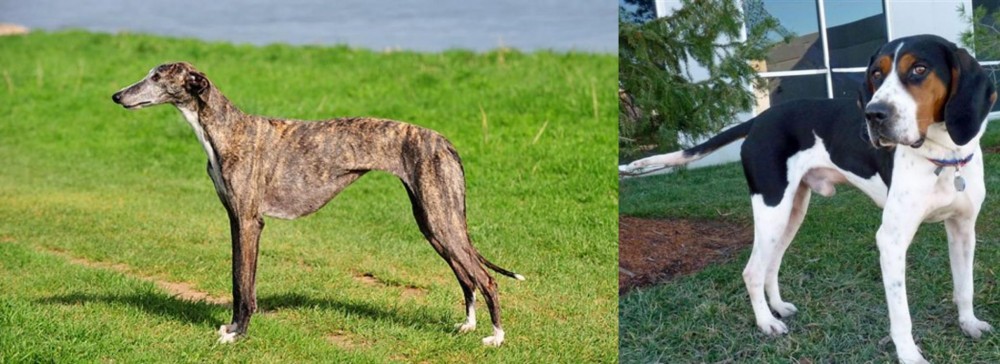 Galgo Espanol is originated from Spain but Treeing Walker Coonhound is originated from United States. Both Galgo Espanol and Treeing Walker Coonhound are having almost same height. Both Galgo Espanol and Treeing Walker Coonhound are having almost same weight. Both Galgo Espanol and Treeing Walker Coonhound has almost same life span. Both Galgo Espanol and Treeing Walker Coonhound has almost same litter size. Both Galgo Espanol and Treeing Walker Coonhound requires Low Maintenance.
Galgo Espanol is originated from Spain but Treeing Walker Coonhound is originated from United States. Both Galgo Espanol and Treeing Walker Coonhound are having almost same height. Both Galgo Espanol and Treeing Walker Coonhound are having almost same weight. Both Galgo Espanol and Treeing Walker Coonhound has almost same life span. Both Galgo Espanol and Treeing Walker Coonhound has almost same litter size. Both Galgo Espanol and Treeing Walker Coonhound requires Low Maintenance.
 Galgo Espanol means Spanish with galgo meaning greyhound, thus a Spanish Greyhound. This breed is ancient with their roots in perhaps the English greyhound and others in the sighthound family. They are much like the greyhound in that they are laid back, calm, gentle and quiet, unless they are competing on the local track. Like the greyhound they are shy and reserved; great with kids and other pets. And of course, they love cats.
Galgo Espanol means Spanish with galgo meaning greyhound, thus a Spanish Greyhound. This breed is ancient with their roots in perhaps the English greyhound and others in the sighthound family. They are much like the greyhound in that they are laid back, calm, gentle and quiet, unless they are competing on the local track. Like the greyhound they are shy and reserved; great with kids and other pets. And of course, they love cats.
There are dogs like the Galgo referred to in writing by the ancient Celts and Romans. One author, Arrian, had his own Galgos and used them when hunting. The breed flourished in the second half of the Middle Ages in Spain and well into the 8th century. When the Christians regained control of the Iberian Peninsula, they did away with the hunter old forms of hunting and introduced a new form with hounds that made the Galgo the pride of the aristocracy and not in the homes of the ordinary people. Arrian claim to two types of dogs, the smooth and rough coated.
Muslim and Chrisitan Kings kept Galgo Espanols. In all probability the Saluke and Galgo were crossbred at this time. It was illegal to kill a Galgo and in 1081, the Mayor of Cartuario of Slonza left his Galgo in his will to Diego Citid. Dogs seen in painting from the 12th century look just like dogs of this breed who can be seen today.
It is believed that when the Galgo was developed, it was in the midsection of Spain or the Castillian plains. They ruled the interior of the country while the bloodhound ruled the exterior. The 18th and 19th centuries saw very little change in the breed. However, in the 20th century, there was cross breeding with the English greyhound that produced a leaner, faster and powerful track racing dog. The results was a faster dog without the long distance stamina of the pure Galgo. For this reason, the breeders returned to breeding the pure professional racing dog.
The sport of racing the Galgo earns Spain around sixty million dollars per year. They train anywhere from three to four thousand of the Galgos every year for Open Field Coursing Championships. Still, there no longer is any cross breeding between the Greyhound and the Galgo. The current coursing programs feature a hare that is much hardier and difficult to pursue so the stamina of the old Galgo Espanol is desired. In Castile, where these games are played, the landscape is open with large fields that requires that the hare travels far greater distances. This means that the stamina of the original Galgo Espanol is needed.
When not racing the Galgos have become great house pets. They have a reputation as gentle dogs that are docile and quiet, with good health. This reputation is well earned. They are also successful show dogs in Europe much more than the states. This is perhaps because they are really rare outside of Spain. They are not recognized by the United Kennel Club nor the American Kennel Club.
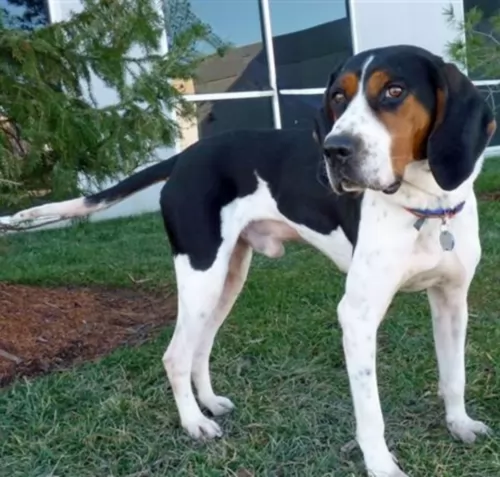 The Treeing Walker Coonhound originated in the United States and comes from English and American Foxhounds.
The Treeing Walker Coonhound originated in the United States and comes from English and American Foxhounds.
The fact that the dog has the word ‘Treeing’ in its names means that it is a hound dog that runs after its prey, sending it running up a tree to escape until the hunter reaches the tree and can shoot the prey.
 Obviously the Galgos looks a lot like the Greyhound, but in some very important ways they are very different. The rear of the Galgos is higher than the front and their muscle are flatter. They are built for endurance while the Greyhound is built for speed. The Galgos is a lighter, smaller dog with larger ear on a long head. They have long tails and their chests are not deep like the Greyhounds.
Obviously the Galgos looks a lot like the Greyhound, but in some very important ways they are very different. The rear of the Galgos is higher than the front and their muscle are flatter. They are built for endurance while the Greyhound is built for speed. The Galgos is a lighter, smaller dog with larger ear on a long head. They have long tails and their chests are not deep like the Greyhounds.
The Galgo comes in smooth and rough coats and a variety of colors. The rough coat protects dogs that are in climates colder than the ones in Spain and also keeps them from injuring their skin while running. The colors include brindle, black, golden, toasted, cinnamon, yellow, red, white, white with patches, or any color as long as they have a white forehead and muzzle.
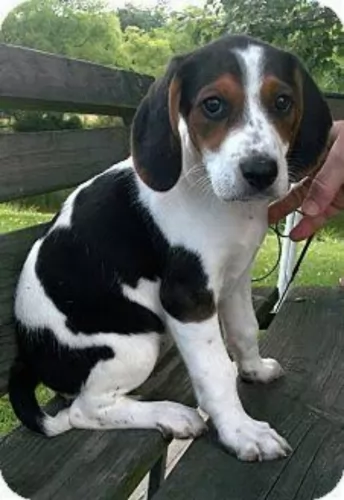 The Treeing Walker Coonhound looks very similar to a Beagle, just with much longer legs.
The Treeing Walker Coonhound looks very similar to a Beagle, just with much longer legs.
He stands at between 51 and 69cm in height both male and female and it weighs between 23 and 32kg.
The coat is short and glossy being either bi- or tri-colored – white, tan and black. The body and legs are strong and muscular. He has fairly long, floppy ears. The eyes are brown, intelligent and alert while having quite a gentle expression.
The muzzle is long and narrow. He has large, floppy pendant ears. The eyes are large, brown and have a soft and gentle expression. The tail is set high and is long.
This breed may be an excellent sport dog but he loves spending time quietly with his human family too, making a great family pet.
He is gentle and makes a great playmate for disciplined children. He is intelligent and it will do both owner and dog the world of good to have him trained and socialized.
They’re stubborn dogs, so it simply makes him well behaved, balanced and a pleasure to have around. He will learn commands easily and readily. If you want a good family pet, the Treeing Walker Coonhound is even-tempered and non-aggressive.
 They are good with children, but you need to be careful no one gets knocked down or hurt.
They are good with children, but you need to be careful no one gets knocked down or hurt.
Stamina for running and a good record in lure coursing.
Though they can be couch potatoes like greyhounds they are better off with a fenced yard and not an apartment.
They are smart and can learn anything you want to teach them if you can keep their attention.
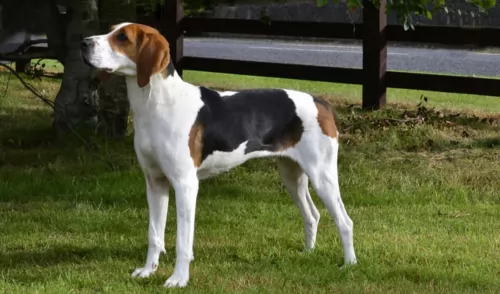 These dogs are loving, loyal confident, social and intelligent, making good companion dogs.
These dogs are loving, loyal confident, social and intelligent, making good companion dogs.
Whether they're outdoors being full of energy and on a hunt, they always give of their best. When they're at home with their human family, they put work behind them and become gentle, mellow pets, loving to just take it easy with their human family.
 Being a large dog, the Galgo Espanol would normally face a high probability of hip dysplasia. Fortunately for the breed this is not true. In this respect their lightness of weight, their history as a working dog and their anatomy have protected them from it. They are however susceptible to other issues.
Being a large dog, the Galgo Espanol would normally face a high probability of hip dysplasia. Fortunately for the breed this is not true. In this respect their lightness of weight, their history as a working dog and their anatomy have protected them from it. They are however susceptible to other issues.
Malignant tumors that quickly spread throughout the body. Life threatening.
As a sighthound, the Galgo Espanol is prone to have issues anytime with anesthetics. They don’t metabolize the anesthetics like other dogs do. They will take longer to revive, and they are susceptible to hypothermia while under an aesthetic.
While running, they are prone to injuries
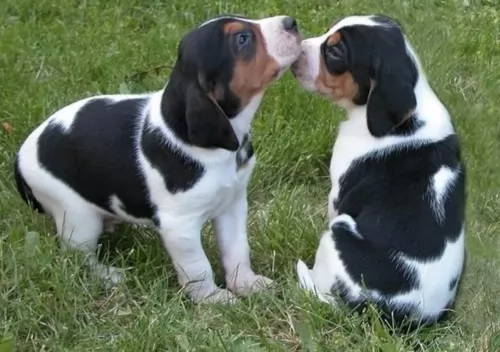 The Treeing Walker Coonhound is looked upon as a healthy dog breed that can be 10 – 13 years of age. Even so, there are diseases that can plague him, and hip dysplasia and ear infections are two that you need to be aware of.
The Treeing Walker Coonhound is looked upon as a healthy dog breed that can be 10 – 13 years of age. Even so, there are diseases that can plague him, and hip dysplasia and ear infections are two that you need to be aware of.
This is when the ball and socket joint isn't formed properly so that there is a grinding action of the joint instead of it sliding smoothly. This common skeletal disease is found in young and old dogs, and it seems more prevalent in larger dog breeds.
Your dog will have pain in the hip joints and even loss of muscle mass in the thigh area. You’ll notice that he becomes less active. Your dog will need to get to the vet so that the vet can suggest treatment for pain and to make him more comfortable.
As a floppy-eared dog, the Treeing Walker Coonhound will scratch at his ears and shake his head if he has an ear infection. With an ear infection inflammation affects the ear canal and can result in deafness. With his floppy ears moisture within the ear can attract bacteria and yeast.
Your pet will need to get to the vet because an ear infection is a painful condition.
 Feed your puppy a high quality dry food made for large breed dogs. Feed 3 meals a day 2.5 to 3 cups total for the day.
Feed your puppy a high quality dry food made for large breed dogs. Feed 3 meals a day 2.5 to 3 cups total for the day.
Feed your adult Galgo a high quality dry food made for large breed dogs. Feed 2 meals a day but don’t overfeed Give 4-5 cups total for the day.
They have amazing stamina and good speed. Generally good health as a breed.
He can be a couch potato indoors and runs forever outdoors. He does need daily exercise and bedrest both. The best would be if you could sprint him every day or have a small yard he can play in. They excel of course at agility and lure coursing. Keep them on a leash because if they run you will never catch them. The American Sighthound Field Association presents lure coursing events that they are eligible for. They have exceled at show competition in Europe but are not well known in the U.S.
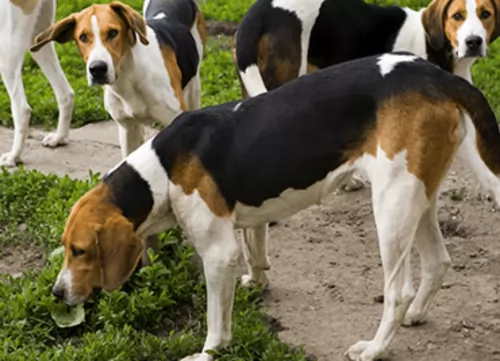 ● A healthy diet with vitamins and minerals as well as essential fatty acids is imperative. To get this in a commercially manufactured dog food, you will need to buy the best, high-quality ones. Some of the inferior brands have all kinds of bad stuff in them such as colorants preservatives and fillers.
● A healthy diet with vitamins and minerals as well as essential fatty acids is imperative. To get this in a commercially manufactured dog food, you will need to buy the best, high-quality ones. Some of the inferior brands have all kinds of bad stuff in them such as colorants preservatives and fillers.
Try and give him some homemade food such as boiled chicken, brown rice and vegetables. Dogs want simplicity in their foods. They can't stomach highly spiced, salted and exotic foods. Plain, wholesome foods keep him healthy and happy.
● It is recommended that you have your dog spayed or neutered. Not only will you prevent an unwanted litter, having them spayed or neutered prevents serious diseases later on. Also, have
your Treeing Walker Coonhound immunized to prevent some of the deadly canine diseases there are.
●These dogs are active, sporty dogs known for their stamina. To keep them lean, athletic and fit, they will require lots of exercise. They love a walk but will require more than a regular walk. Hikes are more what they have in mind. They never tire of hectic ball games, hide and seek and swimming. Because they are active, alert and intelligent dogs, they will need mental stimulation too.
● Your Treeing Walker Coonhound isn't a high maintenance dog because their short coat is easy to keep groomed just by giving him a good brush once or twice a week.
Make the grooming session a time to check him over for ticks and fleas and any unusual lumps on his body. It's a time to look at his eyes to make sure they're clear and bright without any discharge. Check inside his ears for redness and infection.
Trim his nails too. Remember he can't tell you about his teeth, so try and look inside his mouth to see that all is well. A good sign of bad teeth is bad breath. There are professional groomers who are willing to do all these grooming chores for you.